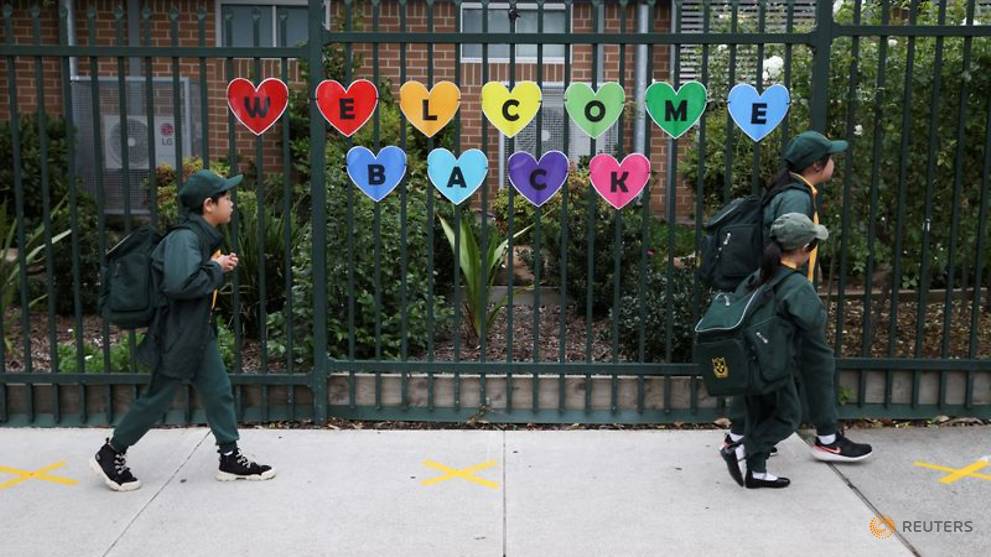
Australia's most populous state braces for travel chaos as schools, offices reopen
SYDNEY: Australia's most populous state on Monday (May 25) deployed hundreds of crowd control staff to enforce social distancing on public transport amid an expected commuter surge as schools and offices reopened and coronavirus cases fell.
Australia has reported just over 7,100 COVID-19 infections, including 102 deaths, well below figures reported by other developed countries.
With fewer than 20 new COVID-19 cases most days, Australian states are pressing ahead with a three-stage plan to remove most social restrictions imposed by July.
In New South Wales, which includes the city of Sydney, children returned to full-time face-to-face learning on Monday, allowing many parents to return to offices.
But officials warned locals to expect travel delays, with buses and trains operating at significantly reduced capacity due to distancing requirements.
"We've got 1.2 million kids on the move," NSW Transport Minister Andrew Constance told Australia's Channel 9.
"We just need everyone to be patient."
READ: COVID-19: Australia opens up domestic life further as China dispute lingers
Prime Minister Scott Morrison has said the reopening of schools is essential for revive Australia's economy.
With international borders likely to remain closed for months, Morrison is also pressing locals to begin holidays locally to help support Australia's tourism sector.
But state squabbles over domestic borders continue to simmer.
While the federal government has devised a plan to reopen the national economy, the implementation is left to individual state and territory leaders, who come from opposing political parties and have different views on how much unrestricted movement should be allowed.
Around 120 million domestic overnight tourists spent a record A$80.7 billion (US$52.7 billion) last year, according to government data, accounting for almost half of all tourism spending.
Morrison's management of the crisis has come into focus after it was revealed on Friday an administrative error had vastly overstated forecast expenditure for a wage subsidy scheme for workers left unemployed by the shutdown.
The Treasury Department said successful efforts to control the outbreak combined with errors on programme applications meant only 3.5 million workers would need to be covered, at a cost of A$70 billion, not 6 million people at a cost of A$130 billion.
BOOKMARK THIS: Our comprehensive coverage of the coronavirus outbreak and its developments
Download our app or subscribe to our Telegram channel for the latest updates on the coronavirus outbreak: https://cna.asia/telegram